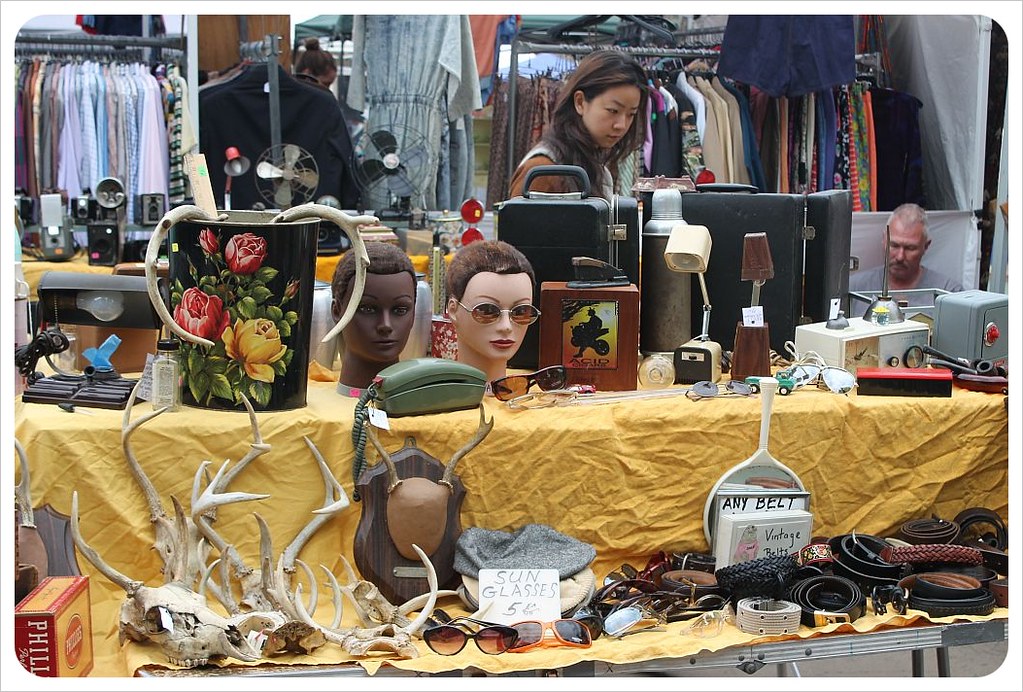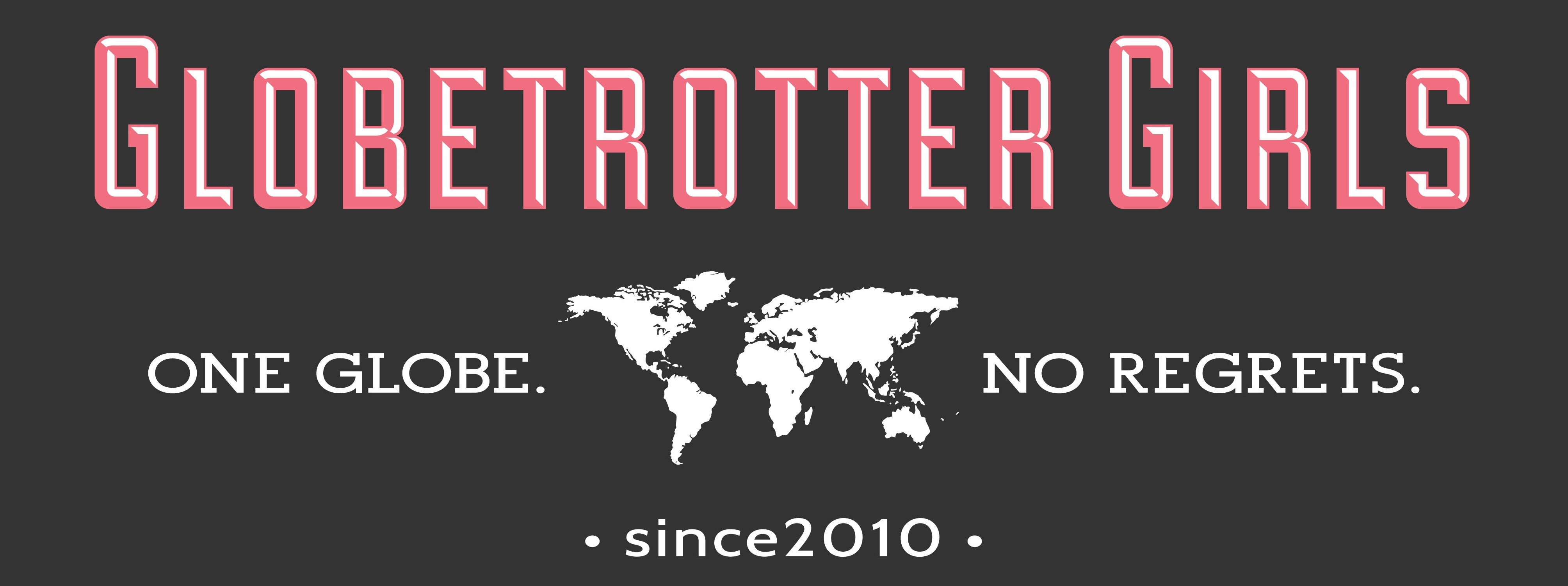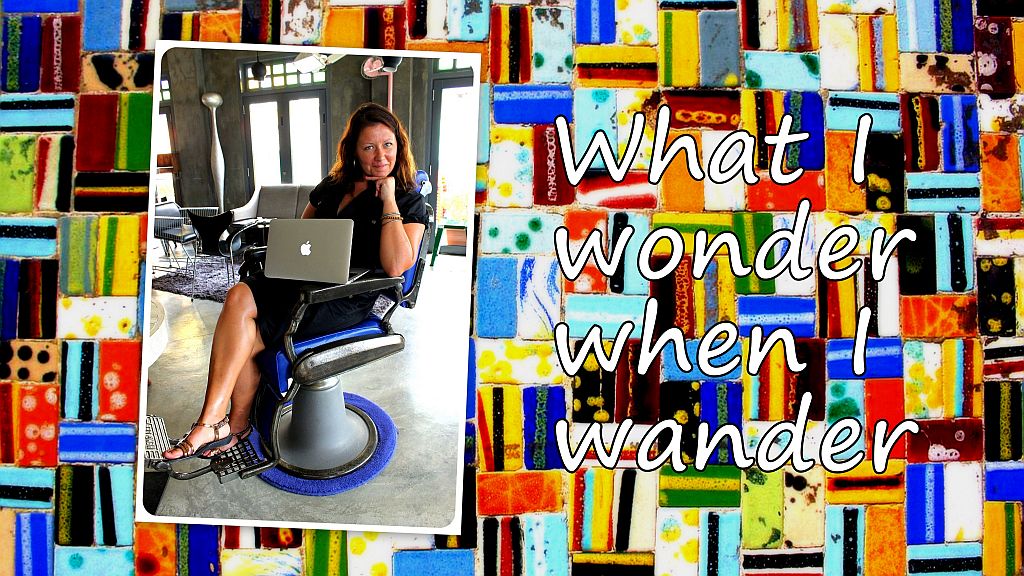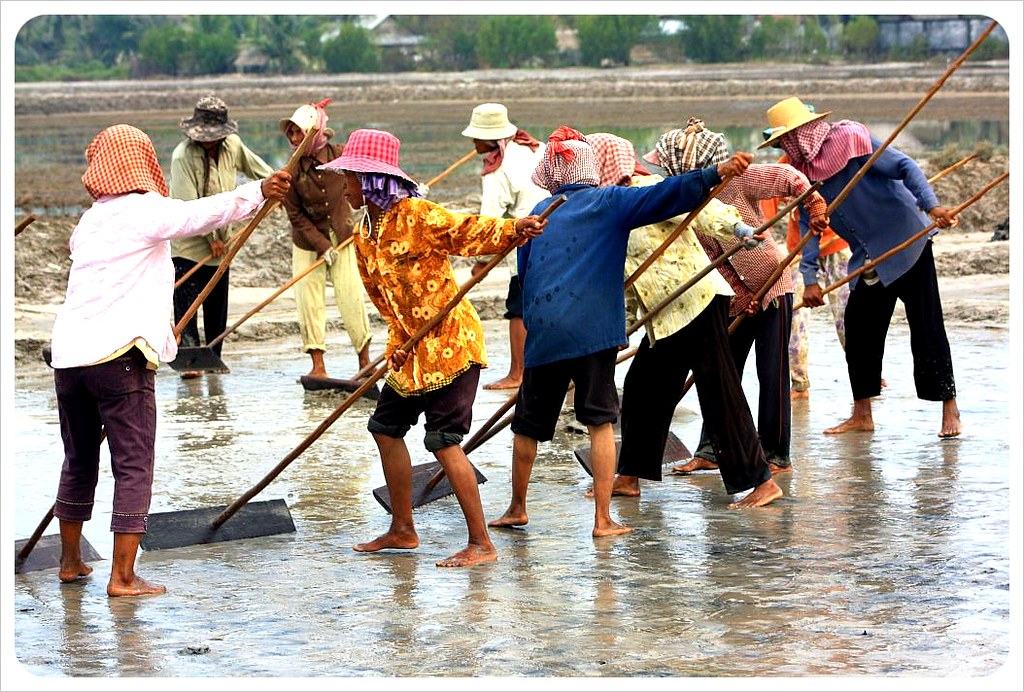Last Updated on January 18, 2026
I think travel might be making me terribly neurotic and there is nowhere I notice this more than in New York City.
The beauty of New York is that you can get almost anything from anywhere around the world. For us, this means that all of the knowledge, experiences, smells, tastes, flavors, cultures we have experienced in the last three years of travel and the ten years of life abroad before that all converge here, in one place.
Yet this is exactly what is causing me apparently quite a bit of stress. Not stress like the people in Muang Ngoi Neua in Laos who had to hide in caves for a decade during the Vietnam War, scaling down a mountainside under the cover of darkness just to tend to crops just to survive.
No, these are total #firstworldproblems – tiny, nearly invisible stressors. The ones that go unnoticed, like those 1KB files that save onto your hard-drive. Slowly, the small stressors start to add up, kilobytes turn into MB, MB into GB and then possibly, these gigs turn into terabytes, though this is a number that is still too big for me to wrap my head around. Let me explain.
It all started at the Brooklyn Flea
Yesterday we went to the Brooklyn Flea, a fun flea market with a mix of stands selling everything from original hand crafted T-shirts and retro furniture to giant pink elephants and boxes of Garbage Pail Kids, all surrounded by food vendors selling food from around the world.
 So there we are, soaking it all up, enjoying from two perspectives: the first because we love flea markets like this, just like all our fellow 30-something hipster-leaning flea visitors and the second from the outside perspective, how happy we are to be in a place that has such clever products, delicious and healthy food – and be able to be on the side of those who can afford such things.
So there we are, soaking it all up, enjoying from two perspectives: the first because we love flea markets like this, just like all our fellow 30-something hipster-leaning flea visitors and the second from the outside perspective, how happy we are to be in a place that has such clever products, delicious and healthy food – and be able to be on the side of those who can afford such things.
Fair trade feels good, unless…
We saunter past a stand selling fair trade organic chocolate made in Africa for $7 a bar, and that little bit of stress starts downloading. The health-conscious side of me that loves the idea of organic 70% cacao wrestles with the part of me that has seen these ‘fair trade’ farms in action. The latter wins, annoyed at the fact that my fellow flea market shoppers who will buy this chocolate will simply think they have killed two birds with one stone – having scored organic chocolate and helped people in Africa all in one day.
Let me tell you, in the last three years, we have toured coffee plantations in Central America, salt fields and pepper farms in Cambodia and tea plantations in Malaysia and make no mistake, this isn’t like strolling through a vineyard in the Napa Valley. These people are working a ridiculous amount of hours for ‘fair’ pay, a subjective, relative term far from being enough to earn them a middle class living that the people who actually purchase this chocolate would actually consider ‘fair’.
Ralph Waldo Emerson eloquently said, “The mind, once stretched by a new idea, never returns to its original dimensions.”
I can’t un-see something, un-know someone, un-do what’s been done and this knowledge forms the lens through which I experience the world, one I wear like Google Glass, interpreting the present as I travel onward. But I am finding that wrestling with the conflict between my knowledge and my actions.
Too much food for thought might be a slippery slope
You might remember way back when I was wondering if I would ever get healthy on the road. Since then I have begun to really inform myself and have made massive strides, especially since my cow incident in India, to get my health and fitness back on track. Armed with the knowledge, I have had the power to change and yet I am also armed with knowledge gained by experience of just how privileged it is to be able to afford these luxuries and then again how annoying it is that I can’t just be sure that average, everyday food at the local supermarket is as healthy and nutrient-dense as it should be. Take milk.
The stand next to the chocolate stand at the Brooklyn Flea was a guy selling nut milk. Three years ago, I’d have scoffed at a guy in a lumberjack shirt and beard selling ‘milk’ of nuts, but after traveling and learning from others just how unhealthy our milk is, stuffed with antibiotics and hormones illegal in other countries, I’m actually happy to see him selling his almond milk and I want to buy some myself.
Of course, somewhere in the background, my system is downloading those kilobytes of stress by my anger with big food and the confusion I feel about being able to drink something so ‘natural’ like milk. Or water! The U.S. (and Canada) adds fluoride to the water for healthy teeth and bones, while European countries (along with most of Oregon) outlaw it because it causes bone decay and other horrific diseases.
Which is right?
Can I drink the water?
How bad is milk for me really?
No one expresses my inner rage about this like comedian Lewis Black, in this hilarious bit on Milk and Water.
As a part of my intensifying health kick, one thing I was ecstatic about for our time in New York was super healthy Kerrygold grass-fed butter. Happy cows, hormone/antibiotic free…all made in Ireland. Can’t go wrong with that, right? Upon doing more research, I discovered a clip by yet another happy bearded white guy, (cleverly titled Kerrygold’s Mooovin to Africa) explaining how Kerrygold will be helping the local African communities by relocating there. And here we go again. Let the wrestling match begin between my knowledge of nutrition and desire to eat healthily and my understanding of the on-the-ground realities behind do-gooder marketing.
Are we causing malnutrition by eating this health food?
The worst conflict for both Dani and I, however, has been our love and guilt surrounding quinoa, a South American grain packed so tight with protein, magnesium, iron and fiber it has been credited by academics for the rise to power of the Incas. Forbes called it the ‘Superfood of the Future’. I imagined how healthy we would be filling up on quinoa throughout South America, but it turned out to be pretty hard to get our hands on. When I researched why we weren’t finding barrels of it spilling over at markets everywhere, I came across headlines like ‘How Many Bolivians are Dying Because Foodies Love Quinoa?’ and dozens of articles asking whether it is even ethical for consumers outside of South America to eat quinoa and whether our consumption is causing malnutrition in Bolivia and Peru. Essentially, the supply of this super food is being cultivated almost entirely for export only and prices are now so high that the locals can not afford the food that has been sustaining them for a millennium.
Does that keep me from eating quinoa? No. Before we flew to New York we picked up a kilo of quinoa from a local market in Chile, but I’ve also ordered it in restaurants as it is often the healthiest food choice on the menu.
Will anything ever feel purely good again?
This isn’t all about food. When we try on $30 jeans at Target that were made in Cambodia, for us the country isn’t just a far-away place to be silently ignored on the tag of our jeans. Cambodia we visited where the smiles of the people melted our hearts, a place where we cried inconsolably at the injustice of the Khmer Rouge and were inspired by how noble the people are rather than hating us for our countries’ lack of involvement in ending the genocide. But we buy these jeans, made in Cambodia, knowing they don’t get a truly fair wage to make them. These jeans fit better than ones sold in Latin America, and also we don’t want to spend $100 on the ones that are handmade for sale at places like the Brooklyn Flea. After all, our funds go to traveling the world, to further feed these neuroses (wink wink).
The other day I came across an article about an amazing organization here called Badass Brooklyn, a local dog shelter “saving badass dogs from idiot humans”. They rescue dogs from inhumane kill shelters in several southern U.S. states, placing them with a wide network of foster families before finding them permanent homes. And yet, rather than just feeling happy at the purity of these badasses, a big part of me actually feels sad, intensely sad thinking about stray dogs in Central America or South East Asia, who are treated so poorly it breaks our hearts on a daily basis while we are there.
And yet, these street dogs exist because they don’t have kill shelters, where dogs are killed if no one adopts them after a month or so. An Argentine pointed that out to me recently, and I realized that we don’t have dogs on the street because so many are just put to death instead. So who is right?
 I constantly take what should be little moments of happiness – like finding a pair of $30 jeans that fit, reading about the badasses or being able to flush toilet paper down the toilet, and contradict them with something I have learned at some point on the road. The thoughts come and go in a split second, just a few KB of stress download, but it all adds up thought after thought, day after day.
I constantly take what should be little moments of happiness – like finding a pair of $30 jeans that fit, reading about the badasses or being able to flush toilet paper down the toilet, and contradict them with something I have learned at some point on the road. The thoughts come and go in a split second, just a few KB of stress download, but it all adds up thought after thought, day after day.
There are genuinely good people who will just buy that $7 bar of fair trade chocolate, or a dozen to give to friends and family, and then grab a bottle of almond milk to wash that sweetness down. They will experience no conflict, their souls at ease.
But not me, at least not yet. The more I travel the world, the harder it is to reconcile my own role within it.
What’s the takeaway?
Would I give up a lifestyle of travel just to avoid the constant, neurotic voice inside? Absolutely not!
Because it is this discomfort, this inner conflict back on my own turf, these are some of the true lessons that travel offers to its most diligent students. What a holidaymaker absorbs from a trip to Cancun for spring break is a love of an ‘authentic’ hot sauce and a new Winsin y Yandel CD.
What I wonder is, if our task as travelers is to learn to navigate through these neuroses and emotional conflicts, how many of us can take these gigabytes of stored stress energy and create, teach, produce something meaningful from it all…?
What do you think? Am I just completely neurotic or do you have similar thoughts after periods of long-term travel?







Rease
Sunday 9th of June 2013
I go through this ALL THE TIME. It is truly a tornado stress attack for me. The need to learn, the attempt to ignore facts that are inconvenient and sad, and the inability to find a balance. A few days ago I thought of you, because a stray dog fell in love with me in Mexico and it made me want to die. I loved him immediately, and for a split second, when I was told his friend had been adopted by a hotel guest not too long ago, I thought "i could save this one!" But then I remembered, I already have a rescued dog, one who I have to fly to different countries sometimes. What could I do for this one? I left feeling miserably guilty.
Carolyn
Thursday 23rd of May 2013
Why do you think it is "neurotic"? You know more now, and so there is more to think about everything than there was before. And there will always be a disconnect when you see other people, who don't know those things, doing what they do.
Jess
Friday 24th of May 2013
Neurotic: a person who is afflicted with a neurosis or who tends to be emotionally unstable or unusually anxious. Unusually anxious being me in a market trying to enjoy things, instead annoyed with myself for the constant back and forth conversations in my own head about bullsh*t marketing to sell chocolate vs possible truth behind 'fair' trade vs wanting to just sample the chocolate and be happy about it and move on without having six million freaking thoughts about a damn chocolate stand. :) Also, I've been living abroad for the last 13 years, the first three years of which were in Central America so I have been feeling so many of these things for so many years and it never just dies down inside my head. You're right about there always being a disconnect when watching people who dont' know what they're doing, doing what they do. Frustrating, but also, maybe I"m attracted to the idea of innocence being bliss, because the grass is always greener?
TammyOnTheMove
Tuesday 21st of May 2013
Beautiful article ladies! It is true, travels make you understand the reasons behind injustices in the world much better. Before I move to Cambodia and started working on human rights issues I never knew how bad the conditions in clothes factories were. I have met workers who got shot at during a protest organised by their union. Things like that are often incomprehensible for people living in the first world. Before I came here I knew things probably weren't pretty, but had no idea how horrendous conditions really were. Traveling made me a more responsible consumer I think.
Jess
Thursday 23rd of May 2013
I didn't even know first hand about the situation in the garment factory, I just assumed, to be honest. Now I feel even more frustrated because I have more knowledge, but I'm still probably going to buy the jeans at Target or Gap. That means that a part of my identity is someone who, knowing what she knows, still supports that in some way. Ugh. But no, it's important that we know - the more we know, the more of a chance there is also to start to eliminate the 'otherization'. If people see Cambodians as equal, then it should be fairly clear that those conditions are unacceptable....
Brian D.
Tuesday 21st of May 2013
Jess, as usual this is a thought provoking and beautifully written piece.
As you might remember, like you I am an enormous animal lover and have many, many problems with the food industry. And in that context I find myself thinking of the exact same dilemma you have here - it's sort of a downer to be knowledgeable in this area, because you feel bad about almost everything you eat.
I know you're a vegetarian and I think that's terrific. My attempt at balance is to do the best I can without going crazy. I absolutely will not eat veal or shark fin soup or any foods that are very high on the cruelty scale. And whenever possible we purchase cage free eggs and chicken, and we have substantially reduced our meat intake to pretty much just poultry. That said, I know life is not a picnic for the chickens and turkeys even raised "cage free" and I always strive to try and do more. My sense is you too have found a good balance, both from an animal and a human rights perspective, and I think that's great.
Re: kill shelters, I too have very mixed feelings. I think it's an international travesty that so many animals are homeless/abused/neglected/put to death unnecessarily, and just thinking about kill shelters breaks my heart. That said, I tend to think that it is probably better to have an unwanted animal given a quick, painless death in a shelter than it is to subject it to a lifetime of cruelty and starvation on the streets. In an ideal world every single animal would have a loving home, but given the reality we face, I don't entirely think kill shelters are overall bad or inhumane, even if I personally support no-kill shelters and do everything I can to promote animal adoption for dogs and cats and my beloved small animals, too.
Jess
Thursday 23rd of May 2013
Completely and totally valid points, I agree with you entirely here. I also have a hard time with kill shelters because we do see so many homeless/neglected animals around the world. Awful people do awful things and maybe it would be better for them not to have to go through that. It's just so so sad when you know the other side, how happy the dogs are, for example, when they are adopted. If I were going to become active in the issue of kill shelters etc I think that prevention is the key - breeders are what need to be stopped, as there are plenty of beautiful dogs/pets out there and if people would go to shelters and not pay $2000 for some sort of labradoodle breed, this wouldn't be an issue in the first place.
In the end, it can be a total downer when you know too much, but I'm just trying to figure out how to reconcile it all with a positive frame of mind...
Cindy Duffy
Tuesday 21st of May 2013
As I read your article I was wondering if you would mention quinoa and you did. I was introduced to it last year and have hungered for it ever since. Soon after I had it my 30 year old daughter told me the whole story on why I shouldn't buy it and I have not although I always look at it in the store. I'm also refusing to buy clothing made in Bangladesh until they clean up their act over there.
Jess
Thursday 23rd of May 2013
I was with you on the quinoa obviously but I back off a bit when I hear people say 'they' and cleaning up their acts. I mean, if you do that, boycott a struggling economy, what about 'buying American'. If anyone in the world needs to clean up their acts, it's right here - pollution, big food, medical bankruptcy, fracking against the well being of the people in the community...so, while i know we have full voting power with our dollars, I don't tend to be down with boycotting necessarily in a lot of those cases...